From the July/August 2022 issue of Apollo. Preview and subscribe here.
After two editions that achieved success in spite of the difficulties imposed by the pandemic, Parcours des Mondes looks set to entice a wider range of collectors and exhibitors back to the galleries of Saint-Germain-des-Prés in Paris this year (6–11 September). Over the course of 21 years, this initiative has established itself as the most important event for ethnographic art in the world. For the enthusiasts who flock here each year, it allows for a series of encounters between people, as well as with works of art. Those who could not attend the last two iterations missed conversations with friends and colleagues in the streets and cafes of the quartier just as much as the experience of coming face to face with art from across the globe.
Last year, around 8,000 people attended – hardly surprisingly, very few were from North America. According to exhibitor Lance Entwistle, collectors from this region are key, accounting for the lion’s share of buyers at the top end of the market. No doubt it is hoped that the appointment of the Californian collector Sam Singer as this year’s honorary president will encourage his countrymen to return once more – before the pandemic struck, Singer and his wife had attended every edition since 2002. ‘I hope to be an ambassador for Parcours des Mondes and art premiers and turn more people on to their power, elegance, integrity and life,’ he says. ‘Parcours combines everything one desires: top artworks, top dealers with knowledge and expertise, exceptional displays of art and the opportunity to meet other collectors and aficionados and learn new things each year.’
Female standing figure (c. 1900–20) Mangbetu people, Democratic Republic of Congo. Pace African & Oceanic Art (in the range of $1m)
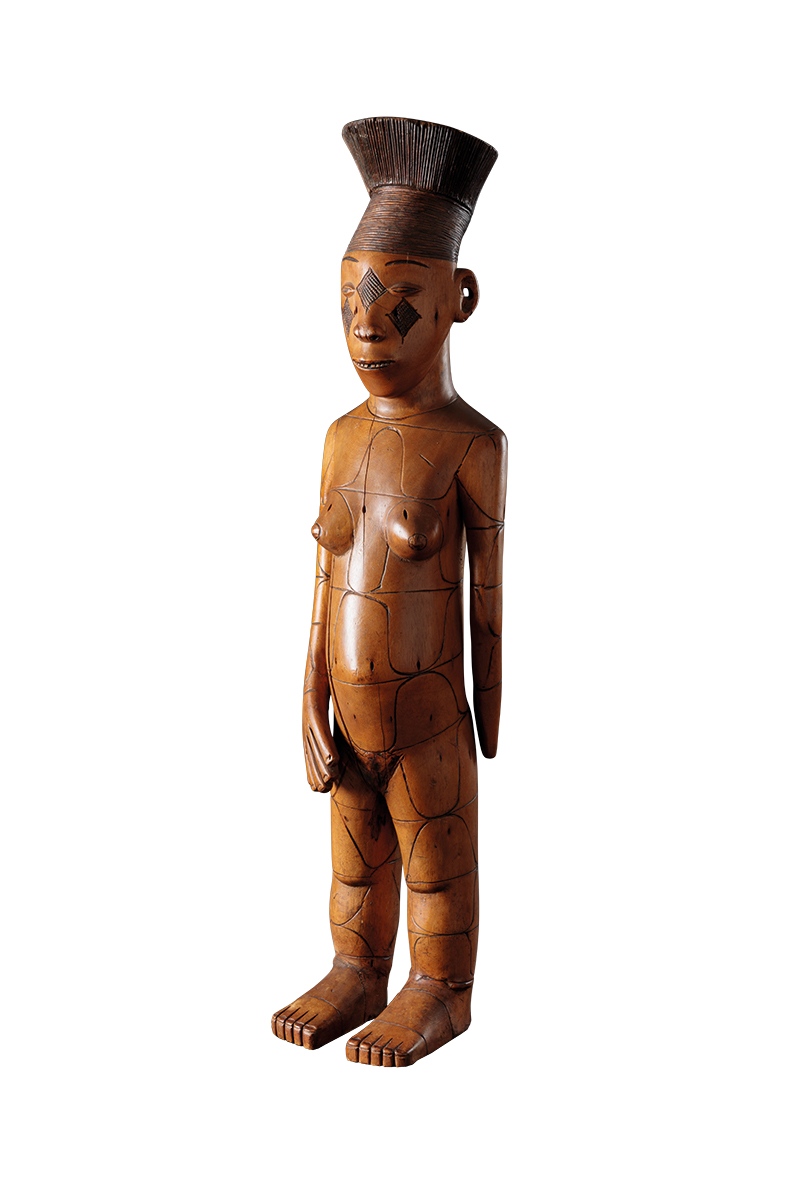
While exhibitor numbers are still not back to the pre-pandemic heights of 65, this year’s acting general manager, Yves-Bernard Debie, has paid tribute to the overseas dealers who demonstrated their confidence in Parcours by coming from as far afield as Australia, the United States and Ivory Coast. Carlo Bella of Pace African & Oceanic Art in New York sees the event as ‘a great opportunity to reconnect with all of our clients who have not travelled to the US in the past few years’. He joins around 40 stalwarts for what promises to be an impressive gathering of predominantly African and Oceanic art, which has traditionally been the core of this event.
Ekpo society mask (late 19th century), Ibibio people, Nigeria. Dalton Somaré Gallery (in the range of €60,000)
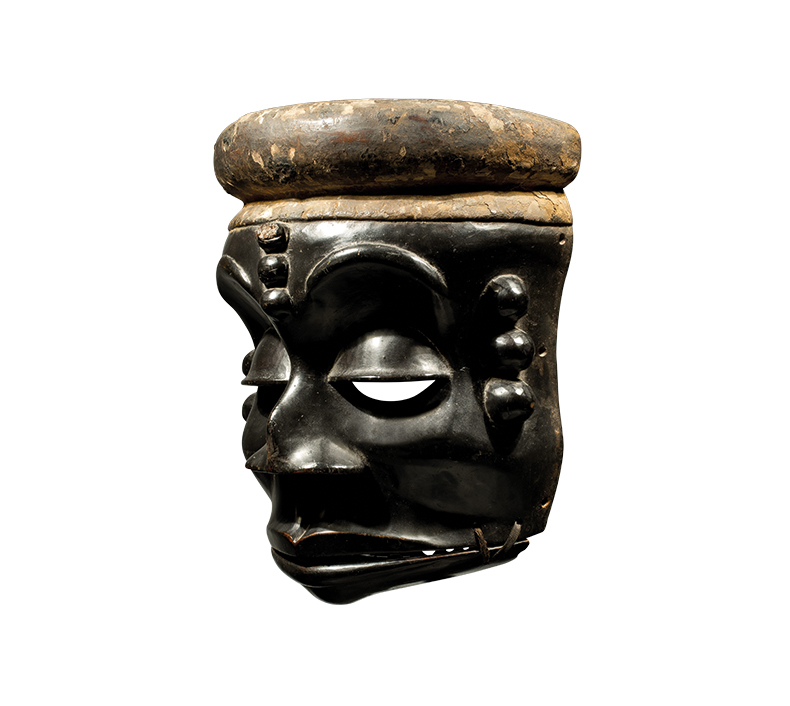
In this field, rarity and quality are not necessarily accompanied by high price tags – works at Pace range from $5,000 to more than $1m. Like many dealers at Parcours, Abla and Alain Lecomte patiently assemble groups of works over several years before staging focused exhibitions with scholarly catalogues. This year, they are displaying some 30 sowei helmet masks, rarely seen on the market, made for the female Sande or Bundu secret societies of the Mende people of Sierra Leone.
Although carved by men, these are the only wooden face masks from sub-Saharan Africa known to have been danced exclusively by women. Worn on the head above a body hidden by raffia, the danced mask, channelling the spirit of female ancestors, presented an ideal of female virtues and wisdom to the initiates. The examples here are characterised by downcast eyes, tiny ears and mouths, rolls of neck fat and extravagant coiffeurs. Most of the exhibits are priced between €3,500–€9,000.
Samana mask (19th century), Dogon people, Mali. Galerie Patrick Fröhlich (€75,000)
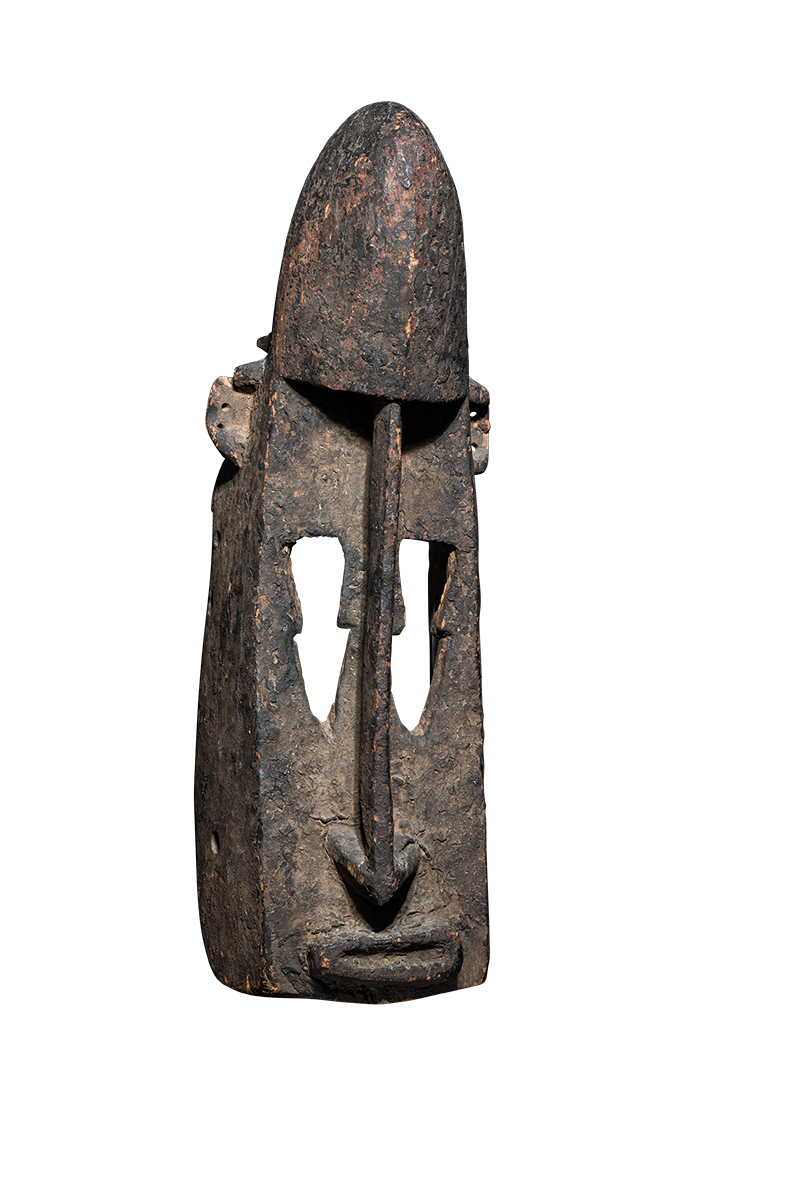
A striking 19th-century Dogon samana mask from Mali, depicting a warrior of the neighbouring Samo peoples, is on offer at Patrik Fröhlich. Like many of the highlights of Parcours, it comes with a distinguished provenance and exhibition history. Part of the appeal for its former owners would have been the brilliance of the form realised by its creator, with imposingly massy features offset by large eye cavities (€75,000). Dalton Somaré Gallery, meanwhile, presents a 19th-century power mask , made for the Ekpo secret society of the Anaang Ibibio people of Nigeria. Though intentionally grotesque and intimidating, its features are remarkable for their fluidity of form, testifying to the skill of the carver (€60,000).
Brussels-based dealer Jo de Buck has been collecting art from the Kuba kingdom now in the Democratic Republic of Congo for more than 25 years; it is the subject of his exhibition and publication this year. The Bushoong have always been the largest and most powerful of the groups that make up the wider Kuba peoples. As they have for centuries, they continue to produce objects to serve the Kuba court today. Not least among them are the particularly refined raffia textiles woven by skilled women artists in complex geometric patterns. An exceptional example here is priced at €5,500; De Buck is also offering what he describes as the best wooden cup he has ever owned for €45,000.
Flute (c. 1750–1800) Maori people, New Zealand. Entwistle Gallery (price on application)
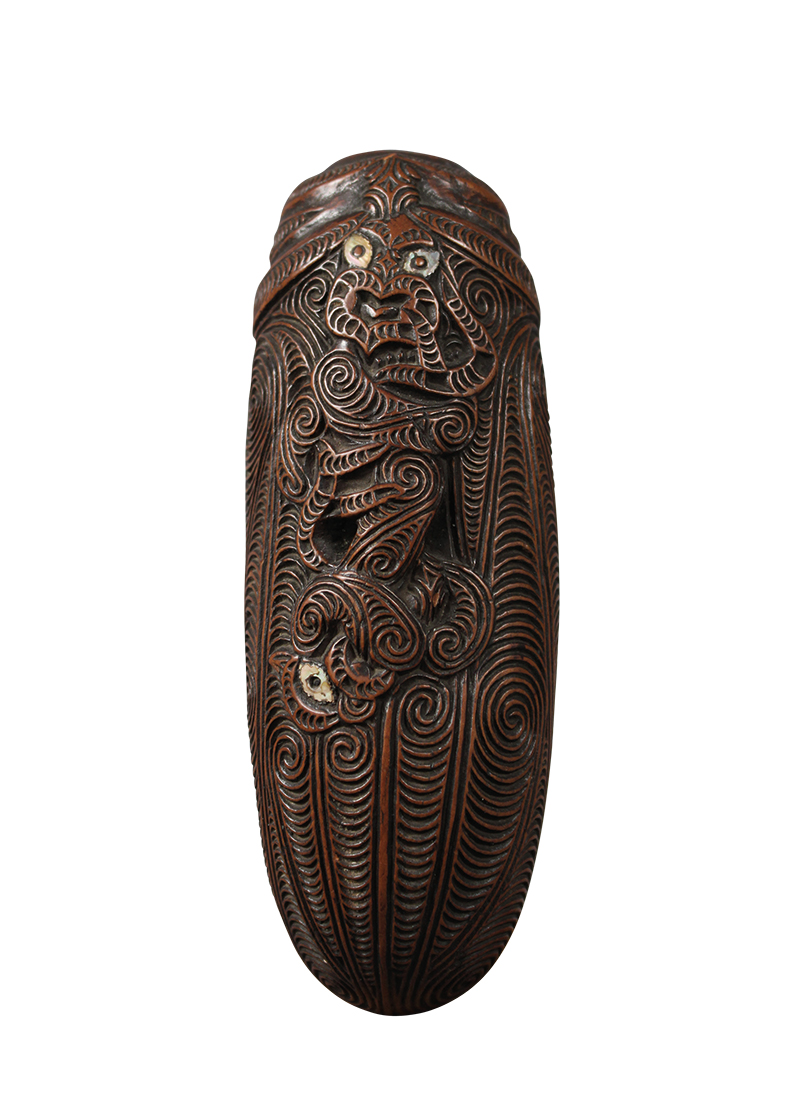
Iatmul house-suspension hooks from the Blackwater River region of East Sepik Province, Papua New Guinea, are notable for their curvilinear and geometric abstract designs carved in low relief. The large example offered by Californian dealer Michael Hamson, produced before contact with the West, appears to combine utility with a symbolic function; it probably represents a mythical ancestor figure whose presence was associated with the wellbeing of the clan ($300,000). More Papuan material is to be found at Galerie Franck Marcelin, which presents two thematic exhibitions accompanied by catalogues: the first consists of war masks and shields; the second of drumsticks. Galerie Meyer offers a further selection of weapons from Oceania, while at Lance Entwistle there is a richly carved Maori flute with shell inlays, made around 1750–1800 and ornamented with fine interlocking scroll motifs and tiki figures (€85,000).
Lastly, contemporary art is also represented this year. Galerie Vallois presents the work of the Togolese-Brazilian artist and designer Kossi Aguessy (1977–2017), while it is also supporting a Madagascan charity offering traditional aloalos (funerary pole sculptures) by contemporary Malagasy artists.
Sowei helmet mask of the Bundu societies (early–mid 20th century) Mende people, Sierra Leone. Galerie Able and Alain Lecomte (in the range of €3,500–€9,000)
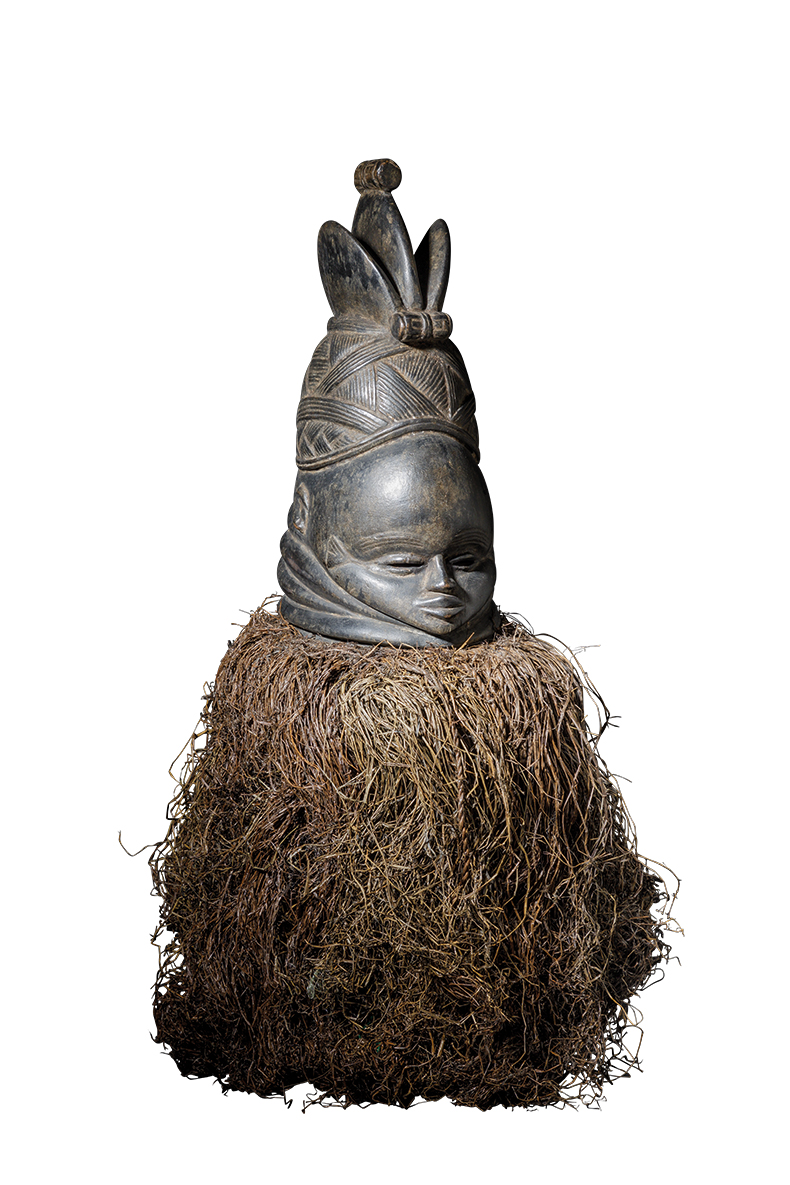
Parcours des Mondes takes place in the galleries around Saint-Germain-des-Prés, Paris, from 6–11 September. For more details, go to parcours-des-mondes.com.
From the July/August 2022 issue of Apollo. Preview and subscribe here.



